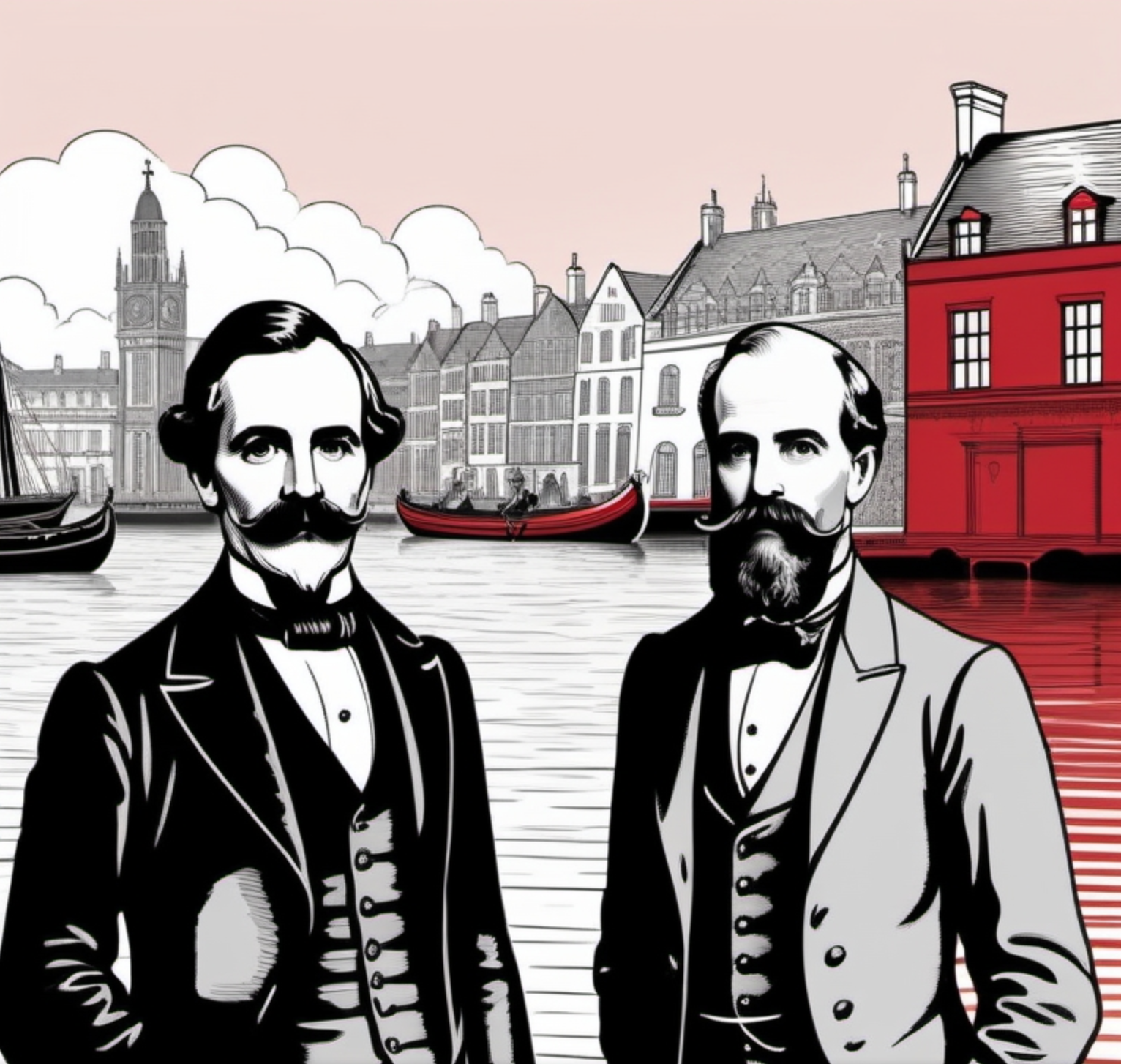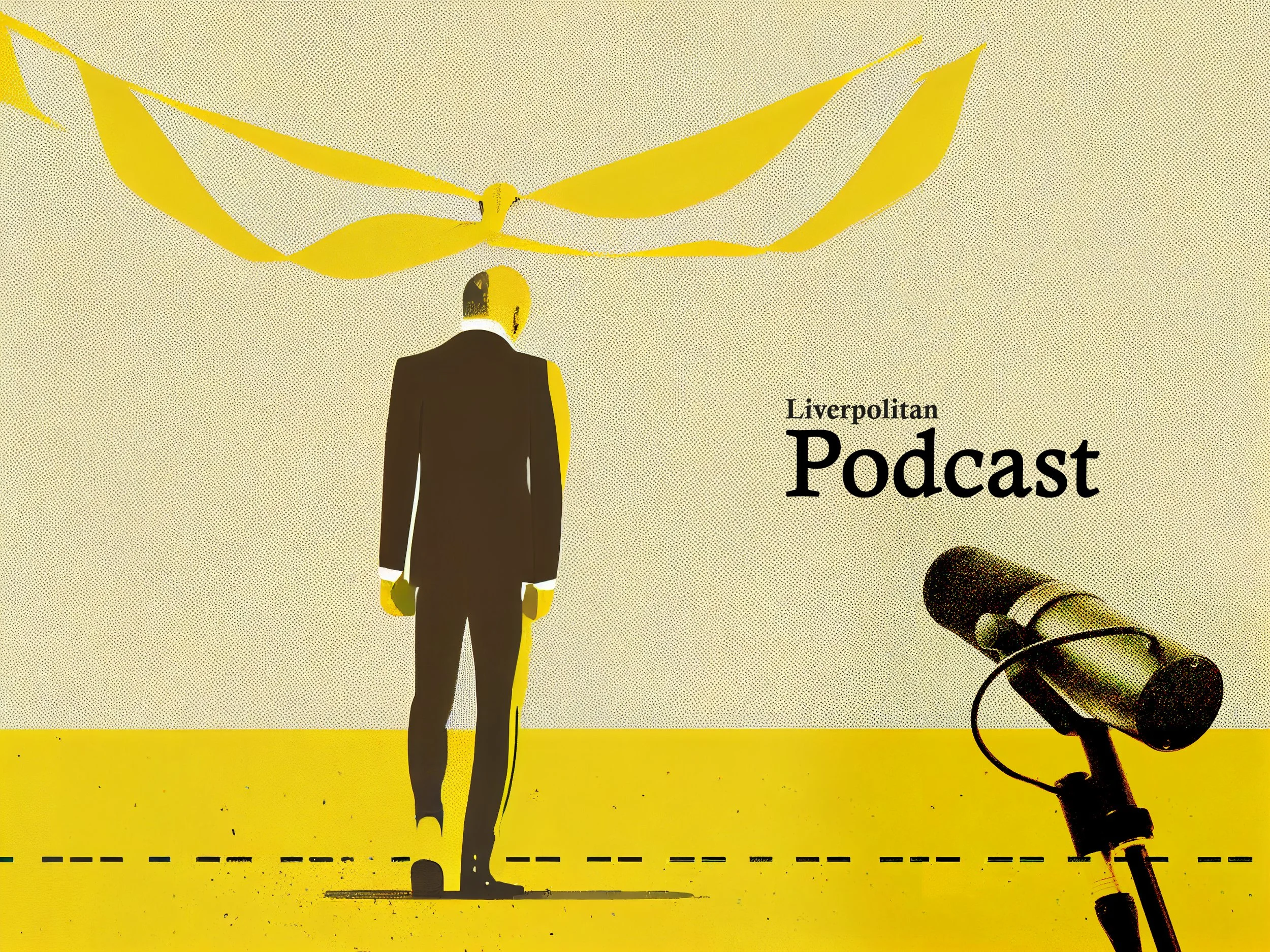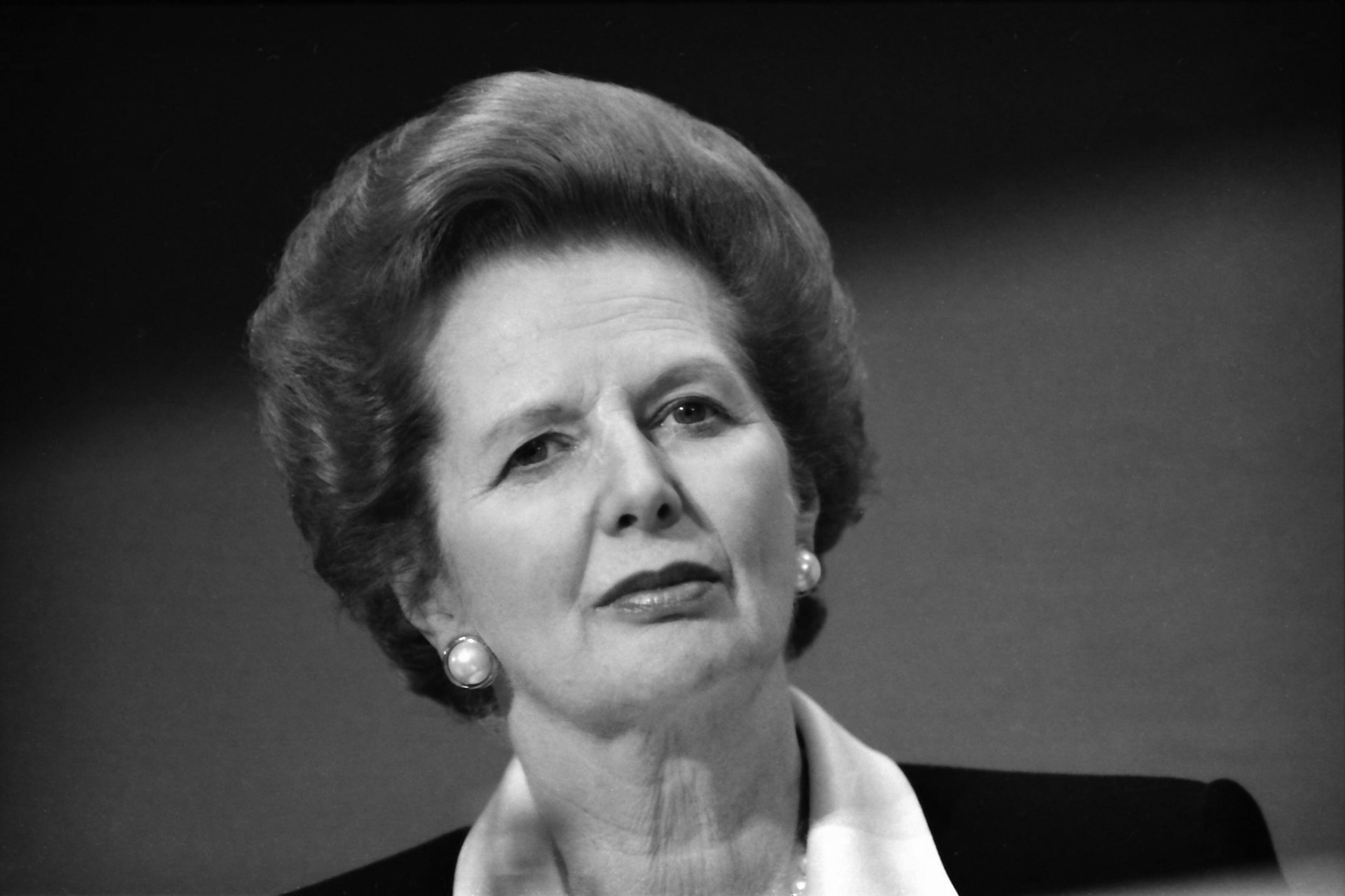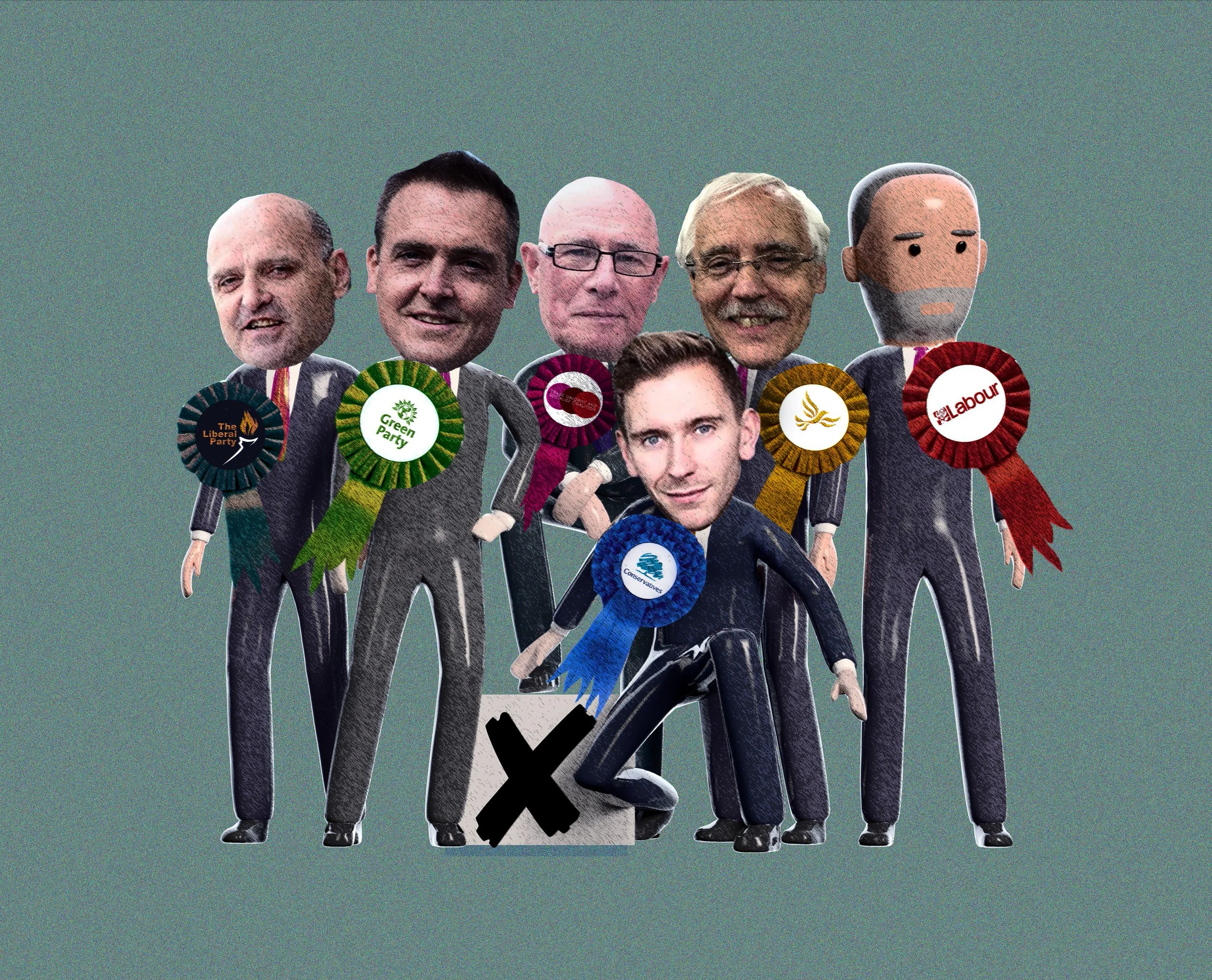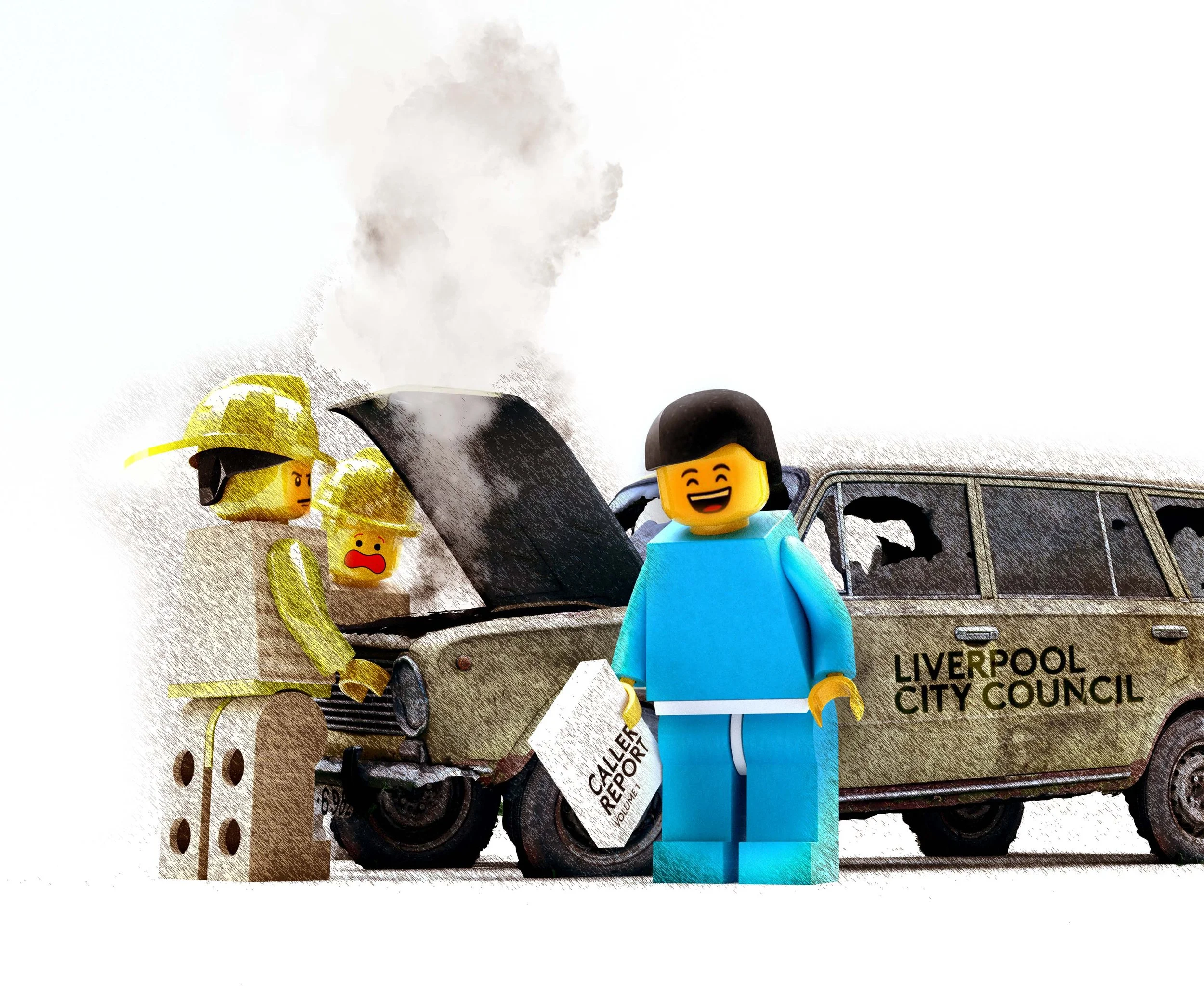Recent features
Pact! What Pact? An Insider’s View on the Lost Battle to Defeat Labour
In the run-up to the 2023 Local Elections in Liverpool, three men working in the shadows, tried to corral the opposition parties into a pact capable of doing some serious damage to Labour at the polls. But in the face of factional intransigence, personality clashes and party ambitions it was doomed to failure. This is the inside story of that failed mission told by one of those men.
Jon Egan
In the run-up to the 2023 Local Elections in Liverpool, three men working in the shadows, tried to corral the opposition parties into a pact capable of doing some serious damage to Labour at the polls. Described as an exercise in herding cats, the enterprise was ultimately doomed to failure, as factional intransigience, personality clashes and party ambitions took hold, before the electorate then delivered the killing blow. This is the inside story of that failed mission told by one of those men, political consultant, Jon Egan.
“Why are we doing this?” is a question that former BBC Radio Merseyside broadcaster, Liam Fogarty and I have been asking ourselves on and off for more than twenty years.
Even before our involvement in the now largely forgotten Liverpool Democracy Commission, we have been kept up at night wondering how to fix Liverpool's broken civic democracy. Years pumped into a losing battle, the odds very much against us. Have we been wasting our time?
The context for the latest phase of anguished introspection was this year’s local elections in Liverpool which, as you may have noticed, returned Labour to power with an increased majority on the City Council. Before explaining the efforts that Liam, myself and Stephen Yip, a former City Mayor candidate and founder of the charity, KIND, made to avert this seemingly predestined eventuality, it’s worth taking the time to fully comprehend and meditate upon the extraordinary fact of Labour’s victory.
There is no simple or rational explanation for Labour’s achievement, although the campaigning skills of my former Labour Party colleague and strategist, Sheila Murphy need to be duly recognised. The Labour campaign was a brilliantly executed masterclass in misdirection, diversion and manipulation worthy of the illusionist, Derren Brown - wiping the collective memory of the city’s voters and convincing them that their party bore absolutely no responsibility for the endemic chaos, waste, corruption and ineptitude of the last ten years. This election, apparently, had little to do with how a struggling city, effectively governed by colonial administrators, was going to put its house in order. No, it turns out the script was the old familiar one about sending a message to the city's historic arch-nemesis - The Tories.
The result, I suppose, proves precisely how difficult it is for people to overcome addictive and self-harmful habits like voting Labour in Liverpool. Maybe what the city needs is not so much new councillors, but counselling.
‘The Labour campaign was a brilliantly executed masterclass in misdirection, diversion and manipulation worthy of the illusionist, Derren Brown.’
In The Myth of Sisyphus, the writer Albert Camus defined the absurd as the irreconcilable gulf that separates human aspirations from the world’s predisposition to thwart them. The tragic image of Sisyphus struggling to roll his enormous boulder to the top of the hill, already sensing the futility of his labours against the forces of gravity, is an apt metaphor for the investment in time that Liam and myself have made in initiatives, campaigns and conversations undertaken over many years in the hope of making Liverpool’s politics function normally. So if the narrative of this election campaign carries the darkly comic resonances of dramatists, Beckett and Ionesco, and their Theatre of the Absurd, then this is not literary pastiche, but rather the perfect paradigm for Liverpool politics. And in that spirit, it seems appropriate to start not at the beginning, but at the end.
One of the most inexplicable aspects of the election result, was the way that the defeated parties far from despairing at the loss of an historic opportunity, were to varying degrees seemingly satisfied (or at worst only mildly disappointed) with their less than modest achievements. For the Liverpool Community Independents getting only three of their cohort re-elected was at least ‘a springboard’ from which to progress. For Green Party Leader, Tom Crone, “bitter disappointment” extended only as far as lamenting the loss of one target ward (Festival Gardens) by a single vote.
For Richard Kemp, the eminence grise of Liverpool Liberal Democracy, the pitiful addition of three councillors, would give his party “plenty of time for reflection on how the council should work, and where the city should be going.” One wonders how after four decades as a City Councillor, Richard was still trying to figure out these rather elementary conundrums, before he finally decided to fall on his sword and announce his long anticipated retirement as party leader.
So let’s rewind to the beginning, or at least the beginning of Act 2. Act 1 being the heroic, but ultimately doomed campaign by Stephen Yip, to be elected as City Mayor in 2021.
Running a surprisingly close and creditable second to Labour’s Joanne Anderson , Yip’s undoing was the stubborn refusal of Green Party Leader, Tom Crone and the ubiquitous Kemp to stand aside to allow for the possibility of deliverance from a disgraced and discredited Labour administration. The 2021 election seemed, at the time, to be a decisive “never again” moment, with penitential expressions of regret from Liberal Democrats and Greens and pledges to learn the lesson of fractured opposition.
Like trying to roll a rock up a hill. Now more than ever, Liverpool’s opposition parties needed to master the alien vernacular of co-operation.
So to Act 2
Following the publication of the Caller Report in 2021 it was decreed that Liverpool should abandon the baroque and inscrutable election-by-thirds system, and instead adopt an all-out election on new boundaries with the majority of councillors to be elected from single member wards. Now more than ever, Liverpool’s opposition parties needed to master the alien vernacular of co-operation. Seemingly unable to conduct conversations between themselves, the task of scoping the opportunities for an electoral pact fell to myself, Stephen Yip and Liam Fogarty. Having manoeuvred the boulder to within inches (well maybe a couple of hundred metres) of the summit in 2021, we felt that one more effort was something we owed both to ourselves and the people of Liverpool. Far from delivering the new dispensation promised following her election, the era of Anderson 2.0 (Joanne) was notable mainly for its dismal continuity - a botched energy contract costing the city millions, hundreds of millions more written off in uncollected tax and rates, revelations concerning councillors dodging parking fines and extended roles for Government Commissioners taking responsibility for even more substandard and failing services.
The process of encouraging political and electoral co-operation between Liverpool’s opposition factions began with a discrete gathering at Richard Kemp’s house in the summer of last year. Treated to copious quantities of sausages and dips, a generally constructive exchange with Richard and his Lib Dem colleague, Kris Brown, concluded with a suggestion that Liam attend their upcoming policy conference to raise a few issues and provide an outsider perspective on the challenges of the upcoming election. Both from this gathering and the subsequent conference, we sensed a distinct lack of enthusiasm for the idea of any form of electoral pact. If this was to happen, pressure rather than polite persuasion might need to be applied.
By the end of the year, we had started informal conversations with friends and contacts within the other three opposition groups - The Liberal Party (an eccentric relic from the pre-Alliance / Lib Dem era sustained in Liverpool through the hyperactive exertions of its charismatic talisman, Cllr Steve Radford), the Liverpool Community Independents (a party formed by dissenting former Labour councillors primarily disillusioned by cuts and corruption) and the Green Party. With the prospect of another squandered opportunity on the horizon, we resolved to take the decisive step of inviting the leaders to a more formal gathering hosted by Stephen Yip at the HQ of his charity, KIND. The tactical approach was to corral the three most willing participants into an agreement and then publicly challenge or shame the Liberal Democrats to come on board.
‘It began with a discrete gathering at Richard Kemp’s house in the summer of last year, where we were treated to copious quantities of sausages and dips.’
Eschewing sausages for club biscuits (salted caramel flavour), the more business-like ambience of the gathering cut straight to the quick. Without an agreement from opposition parties (all of whom occupied terrain to the left of the centre) we would be facing the prospect of another four years of Labour misrule. Apart from pointing out the mutual benefits of a pact, we offered to provide whatever practical, organisational and campaigning resources we could muster from the networks created during Stephen Yip’s mayoral campaign. Admittedly, these were no match for the Labour legions, but we believed they could help the disparate groups to sharpen core messages, target more efficiently and raise the quality and potency of communication collateral. These resources were conditional on the reality of a pact and a clear indication that its participants were putting city before party.
From the outset the Liberals and Community Independents were fully and unequivocally committed to the principle and practicalities of a pact. For Tom Crone and the Green Party, the proposition was clearly more problematic. Promising to take the idea away for "consideration", we were left with an uneasy sense that history was repeating itself. It was unclear at the time, and indeed still is, by what means of mysterious convocation, the Liverpool Green Party reaches its decisions. With Tom intimating that the national party was instructing them to field the maximum possible number of candidates, the sad implication was that regime change in Liverpool was less of a priority than adhering to the diktat from on high. After several days of radio silence, I was tipped off that Tom would be attending a film event at St Michael's church, and it might be a useful opportunity to see how things were progressing. Our conversation, sadly, revealed that they weren't, and that even a three party pact was becoming an unlikely, if not entirely illusory, possibility.
Stephen Yip's description of our undertaking as an exercise in herding cats was suddenly complicated by the unexpected arrival of a much more exotic species defying all known zoological and political categorisations. The first in a series of audiences with hotelier and property developer, Lawrence Kenwright, took place in late December in the sepulchral gloom of the Alma de Cuba bar, formerly St Peter's church. The bar had been the venue for a series of revivalist-style rallies at which Kenwright had railed against council corruption, presenting himself as the figure-head for a new, popular movement called Liberate Liverpool, that would sweep aside the cliques and cabals that had brought the city to its current parlous state.
‘It was unclear at the time, and indeed still is, by what means of mysterious convocation, the Liverpool Green Party reaches its decisions.’
I was deputed to conduct the initial conversation, that provided a fascinating insight into Kenwright's character and motivation, the history of his relationship with the City Council and Mayor Joe Anderson, and the ambitions underpinning his political project. Kenwright's almost visceral determination to unseat Labour was evident; what was less clear was his precise role in the project, and the means and method by which it was to be achieved.
Whilst it was easy to understand the motivations behind Liberate Liverpool, and its attraction as an antidote to an out of touch and self-serving politics, it was difficult to believe that it offered any kind of remedy. Symptoms are not cures, and Liberate Liverpool’s attraction for cranks, conspiracists and far-right interlopers was perhaps an inevitable consequence of its febrile genesis and almost millenarian rhetoric. Some good and sincere people answered the call only to be sent into battle with the campaigning equivalent of peashooters and water pistols. At a subsequent meeting (accompanied this time by Liam Fogarty and ex-Labour Councillor Maria Toolan), we embarked on what we thought was a subtle policy of dissuasion, politely pointing out the inherent flaws of a campaign targeting "people who don't vote" and relying almost exclusively on social media, only to be accused by a Kenwright acolyte of "disrespecting Lawrence."
Our approaches were an attempt to scope the albeit remote possibility of identifying suitably vetted independent candidates who could be assumed into a broader-based Clean-Up Coalition. It is an indicator of our desperation that this hope was ever entertained.
‘We embarked on a subtle policy of dissuasion, politely pointing out the inherent flaws of a campaign targeting "people who don't vote" only to be accused by a Kenwright acolyte of "disrespecting Lawrence."'
As February rolled into March, our efforts became simultaneously more modest and more desperate. Following advice from a sympathetic insider, we were advised to bypass Kemp and re-pitch the idea of an electoral pact to the Lib Dems through the party's former leader and campaign supremo, Lord Mike Storey, who we later discovered was to stand as a candidate in Childwall. Alas Stephen Yip’s conversation with Storey was even more emphatically negative than the sausage-gate soiree with Kemp months earlier.
It was clear we needed to explore more pragmatic alternatives. If not a city-wide pact, perhaps a nod and a wink understanding to avoid actively campaigning in each other's target seats? Maybe also an agreement around some core commitments to improve transparency and accountability, combat corruption and restore public confidence in the City Council? Initially, Richard Kemp sounded refreshingly and surprisingly up for it, but with the fatal complication that some of their target seats were also target seats for the Greens and the Liberals. Nods and winks would have to be restricted to the safest Labour seats in Liverpool where none of the opposition parties entertained serious hopes of winning. In other words, for show only. Meanwhile, Stephen Yip drafted four pledges on transparency and corruption, which were immediately endorsed by the Community Independents and the Liberal Party. The Lib Dems, however, would not sign up; the response published on the But What Does Richard Kemp Think? blog, a depressingly patronising and public epistle "explaining" that the proposals were either illegal, already in place (due largely to his efforts) or would be a waste of money. It seemed futile to point out to Kemp that the proposal for an Independently-chaired Standards Board was not only perfectly lawful, but had been initially drafted for Stephen's Yip’s 2021 manifesto by Howard Winik, who was now a Liberal Democrat candidate.
Unlike his predecessor, does the Lib Dem’s new leader, Carl Cashman have the imagination or inclination to detach his party from its comfortable civic niche in South Liverpool suburbia?
For me, this was perhaps the final and conclusive evidence that laid bare the true nature of Liverpool Liberal Democrats and their deep complicity in a council whose corrupting and dysfunctional culture long predates the shortcomings of the Joe Anderson era. They are not, in my view, an "Opposition Party" in any meaningful sense of the word, but are more akin to the tame collaborators in the sham democracies of the Soviet Bloc - the Liverpool equivalent of the Democratic Farmers Party of East Germany. They have no desire to fundamentally reform or reset a moribund civic culture, but are content to bide their time in the hope that circumstances will grant them an opportunity to preside over its decrepit edifice. In one sense, Liberate Liverpool were right; the Liberal Democrats are not part of a solution, but are an intrinsic and intractable part of the problem. Whether Kemp’s much younger successor, the neophyte Carl Cashman, has the imagination or inclination to detach his party from its comfortable civic niche and the bucolic pastures of South Liverpool suburbia, will largely determine whether Liverpool's local democracy remains a hollow charade, or becomes an empowering mechanism for change.
‘The Lib Dems are not an "Opposition Party" in any meaningful sense of the word, but are more akin to the tame collaborators in the sham democracies of the Soviet Bloc - the Liverpool equivalent of the Democratic Farmers Party of East Germany.’
Epilogue
It is the tragic-comic circularity of the narrative that makes Liverpool politics an absurdist drama. The interminable wait for Godot - an intervention, a new structure, a new political alignment, a salvific figure able to break the cycle of failure, corruption and chaos that has blighted our city for as long as anyone can remember.
On the day of polling, I was helping Maria Toolan with some last minute door knocking to encourage supporters to get out and vote in the City Centre North ward. She was already sensing with fatalist resignation, that her efforts to unseat two former Labour colleagues had failed. "The problem is," she lamented "people aren't bothered about waste and corruption, it's what they expect from the city council and they don't believe that it's ever going to change."
This is the suffocating dead weight of Liverpool politics, an oppressive inertia and sense of fatalism engendered by decades of broken promises, betrayed trust and shameful failure. It's the gravitational drag that immobilises progress and snuffs out any glimmer of a more honest and hopeful politics.
Labour's strategy understands and exploits this endemic cynicism. It doesn't really matter how badly we've governed Liverpool, this is a Labour city and elections cannot alter this brute existential reality. Sending a message to the Tories might actually seem like a more worthwhile place to put an ‘X’ than investing in a hope for something better, when you suspect that this isn't even a logical possibility. Little wonder that 8 out of 10 Liverpool voters decided to stay at home.
Would an electoral pact have unseated Labour? Would it have signalled to voters that there was a tangible possibility of an alternative administration? It's hard to say, but looking at the results and totting up the number of seats where competing opposition parties on the progressive wing of politics won more votes than the Labour majority, it cannot be completely discounted.
Labour mis-fire. By personalising the campaign against Gorst, they had also localised it. In Garston, the election was no longer a rehearsal for a General Election. It was about the honesty and integrity of individuals and their credentials to represent their community - weak territory for Labour to fight on. Photo from Twitter @Pablo8485
If there is cause for hope, it was in the response to what was one of the most deplorable manifestations of Liverpool Labour's darker instincts. The officially sanctioned Labour campaign, scripted from on-high and professionally disseminated under the supervision of Sheila Murphy and their Regional Office, was a vacuous mash-up of kick-the-Tories and Eurovision-phoria. But beneath the sanitised veneer another more vicious and toxic campaign was being waged against Community Independent candidates who had originally been elected under Labour colours. Fake social media accounts became platforms to abuse, ridicule and defame the Community Independents with particular venom aimed at Sam Gorst, a former Labour Councillor seeking re-election in Garston.
The ferocity of the campaign against Gorst reached its nadir with a shamefully deceptive leaflet masquerading as a community newsletter which raked up Gorst's old social media posts, and more seriously, falsely implied that he had used his position as a councillor to jump the social housing queue. Within an hour of the leaflet being issued, we launched our final, and perhaps only effective contribution to the election campaign. A round-robin email was despatched to secure the support of the city's four opposition leaders in a joint denunciation of Labour's malicious and dishonest leaflet. And to their credit, Kemp, Radford, Crone and the Community Independent's Leader, Alan Gibbons all replied with personalised quotes for a media release within 30 minutes. The unprecedented show of unity secured positive media coverage, that was followed by The Echo's political correspondent, Liam Thorp exposing the tell-tale fingerprints of Labour on the scurrilous social media accounts.
An otherwise faultless Labour campaign had slipped up. By personalising the campaign against Gorst and his running mate Lucy Williams, they had also localised it. This election and the campaign against Alan Gibbons in Orrell Park, were no longer just dummy run rehearsals for a General Election or a vote of thanks for delivering Eurovision; they were about the honesty and integrity of individuals and their credentials to represent their community. Gorst, Williams and Gibbons' victories may or may not be a platform for the future growth of the Liverpool Community Independents Party, but they are perhaps a hopeful intimation that gravity doesn't always win.
Jon Egan is a former electoral strategist for the Labour Party and has worked as a public affairs and policy consultant in Liverpool for over 30 years. He helped design the communication strategy for Liverpool’s Capital of Culture bid and advised the city on its post-2008 marketing strategy. He is an associate researcher with think tank, ResPublica.
Share this article
What do you think? Let us know.
Write a letter for our Short Reads section, join the debate via Twitter or Facebook or just drop us a line at team@liverpolitan.co.uk
Referendum or bust – Liverpool’s last chance?
A discredited administration hamstrung by scandal. A weakened leader eyed by pretenders to the throne. A collapse of trust. And, underlying it all, a sense of drift and a loss of status in the world. For Boris Johnson’s Britain read Joanne Anderson's Liverpool. Both increasingly tottering on the precipice.
Liam Fogarty
A discredited administration hamstrung by scandal. A weakened leader eyed by pretenders to the throne. A collapse of trust. And, underlying it all, a sense of drift and a loss of status in the world. For Boris Johnson’s Britain read Joanne Anderson's Liverpool. Both increasingly tottering on the precipice.
Of course, it would be unfair to blame the city's current Mayor for more than a fraction of the woes afflicting Liverpool and its council. But her discarded pledge of a referendum to decide on whether to keep Liverpool's mayoral system was more than just another politician's broken promise. It was an affront to local democracy. The pitifully small response to the council’s subsequent governance consultation – just 3.5% of Liverpool residents replied - was inevitable. Launched in March, and conducted almost entirely online, the process was an artist's impression of a democratic exercise. The letter sent to each city household, directing its recipients to the Liverpool – Our Way Forward website, looked and read like a tax demand. Residents had 3 months to reply but a council taxpayer-funded "Have Your Say" supplement to promote the consultation was published with the Liverpool Echo on June 10th a mere ten days before the submission deadline. Perhaps if they were going to be this half-hearted they shouldn’t have even bothered. Its four vacuous pages contained plenty of room in which to set out the arguments for and against the various governance models on offer. Incredibly, it did not do so. An opportunity for meaningful engagement with Echo readers was spurned in what became a literal waste of space.
So what is to be done?
In his ground-breaking mayoral election campaign last year, as Liverpool absorbed the findings of the Caller Report into council misconduct, Independent candidate and eventual runner-up, Stephen Yip, called for a "re-set" of Liverpool City Council. He demanded top-to-bottom reforms in response to Caller's damning discoveries. The re-set phrase proved popular and was soon taken up by Labour's candidate, Joanne Anderson during her campaign. Once elected, however, she abandoned her commitment to resolve the mayoralty issue by means of a public vote, claiming a consultation would cost less than a full referendum which she deemed too expensive to justify. Since Joanne’s election, we have seen backsliding on the promises of more transparency and scrutiny of council business. Caller’s recommendation for a significant reduction in the number of councillors has been ignored, with the current 90 councillors being reduced merely to 85. Meanwhile, government-appointed commissioners now report that in several respects our council is going “backwards not forwards” in dealing with the issues it faces.
The loss of millions of pounds thanks to a botched energy contract showed systemic failings were not confined to the departments excoriated by Max Caller. There’s talk of more commissioners being drafted in, and more departments falling under their iron fist as skeletons continue to tumble out of closets. Not so much a re-set, then, as a return to politics as usual in Liverpool.
Stephen Yip and I agree that the first step towards an actual re-set is to let the people of Liverpool decide how their city should be led. Liverpool is local democracy’s ‘black hole,’ the only major city in England to have repeatedly denied its residents the chance to vote on how it should be run. The idea that Liverpool's citizens should be able to decide whether to keep or scrap the mayoral system is anathema to the control freaks at the Town Hall. Our politicians won't give us the mayoral referendum we are entitled to unless they are forced to.
Former Independent Mayoral Candidates, Liam Fogarty and Stephen Yip, launch ReSet Liverpool, a campaign to force Liverpool City Council to run a full referendum on city governance.
ReSet Liverpool
That’s why we are launching ReSet Liverpool, a petition-led campaign to give the people of the city the referendum they were promised. We reject the council's attempt to take such a huge decision on the city’s governance by itself. Options for the future running of Liverpool should be put directly to its residents at the ballot box.
Our petition aims to secure the 16,500 signatures (5% of the city's electorate) needed to trigger a referendum on whether Liverpool should retain the post of directly elected Mayor. A referendum held next May to coincide with scheduled elections for a Mayor and local councillors would come at minimal additional cost.
The final say on this issue should belong to the people, not politicians. It’s a matter of principle. Self-serving attempts to sideline the electorate are destructive. They weaken the already-strained connection between the people of Liverpool and their local council and lead to greater cynicism and indifference.
“The final say on this issue should belong to the people, not politicians. Options for the future running of Liverpool should be put directly to its residents at the ballot box.”
Without a referendum, Liverpool’s politicians are likely to revert to type. If they do move to abolish the mayoralty without public consent, then the simmering – and largely unreported - power struggles inside the council’s majority Labour group will burst open, absorbing the time and energies of all those involved. Mayor or no Mayor, in May 2023 every Liverpool council seat will be up for grabs on new electoral boundaries. As what is now 30 wards morphs into a whopping 70 smaller ones, once safe council positions will be under threat as councillors from the same party will be forced to compete with each other. The jockeying to be selected as candidates has already started and local parties’ fratricidal tendencies will be given full rein. The ward elections themselves will provide ideal conditions for the kind of hyper-local political warfare that appeals to party activists but no-one else. The chances of such a process producing a clear city vision, strong civic leadership and a coherent policy platform will be remote. Not for the first time, Liverpool politics will be all tactics and no strategy.
For ReSet Liverpool, a referendum on the mayoralty is the very least the people of this city deserve. May be it can also be the start of a broader campaign to reform our council and renew our city. If you are registered to vote in Liverpool, download a petition form (HERE) and if they live in Liverpool, get your friends, family and neighbours to sign up. Together, we have a chance to help kick-start that overdue process of civic renewal. It could be the last chance we’ll get.
Liam Fogarty is co-founder of ReSet Liverpool. A journalist, broadcaster and lecturer, he ran as an independent in Liverpool’s first Mayoral Election in 2012, finishing second.
Further Information
To find out more about Reset Liverpool and to download a copy of the petition, visit www.resetliverpool.org. Note: Only Liverpool residents over the age of 18 who are registered to vote can sign the petition. Completed petition forms should be returned to:
Reset Liverpool
301 Tea Factory
Fleet Street
Liverpool
L1 4DQ



